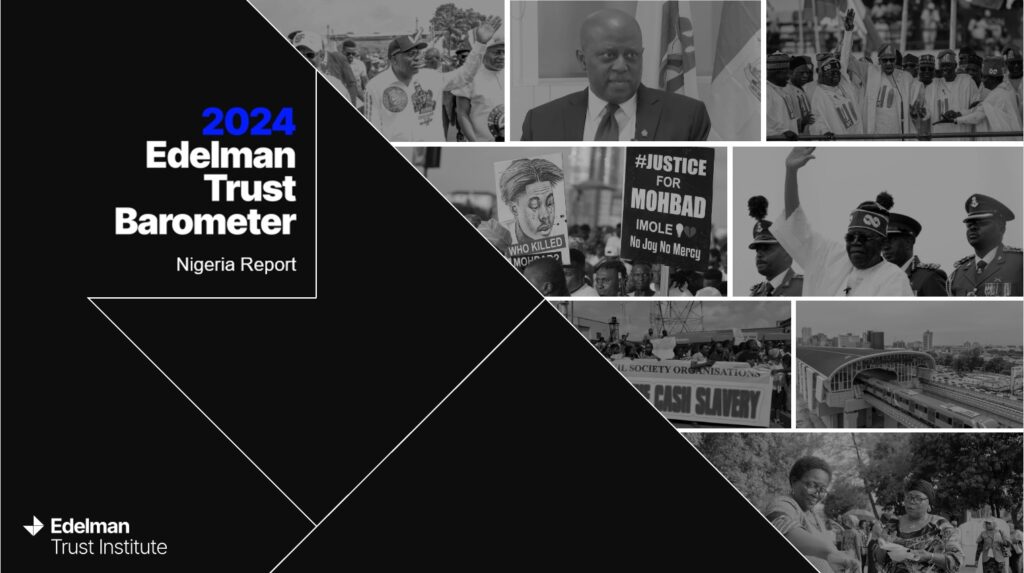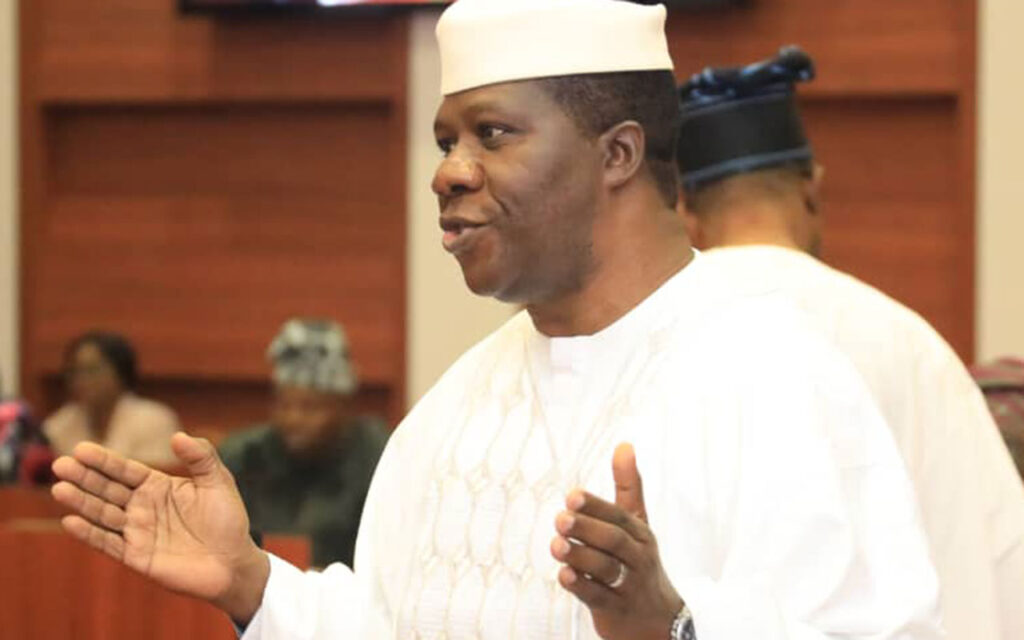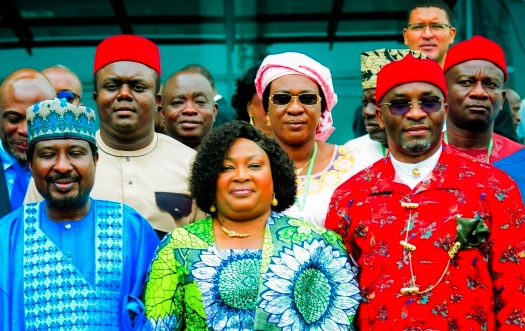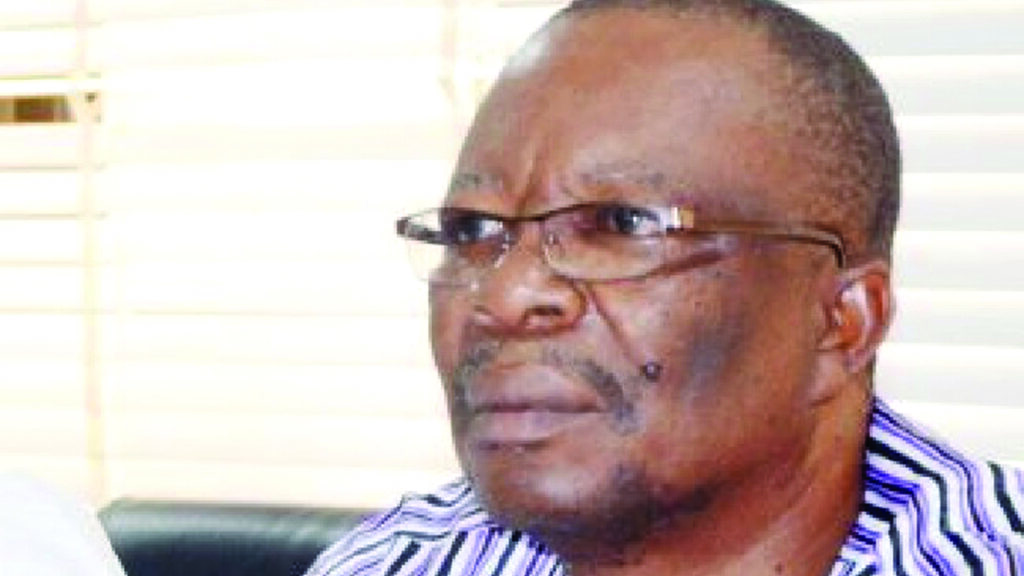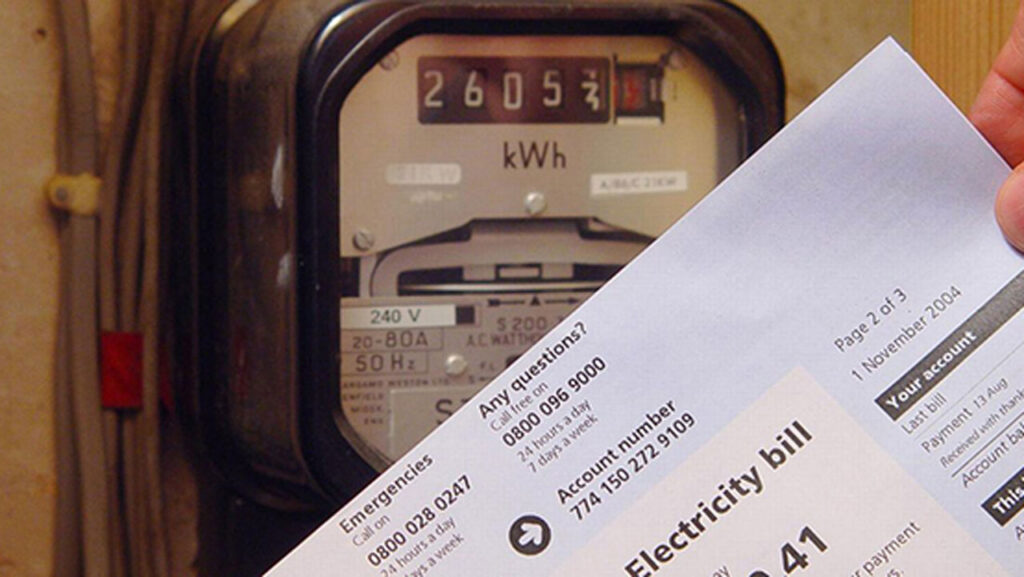The 2024 Edelman Trust Barometer has revealed Nigeria as a global frontrunner in the perception of well-managed innovation, ranking second worldwide.
This year’s report highlights that 35 per cent of Nigerians believe innovation is well managed in their country, a sentiment echoed by only three other nations globally, namely – Kenya, the United Arab Emirate (UAE) and Saudi Arabia.
The Edelman Trust Barometer, renowned for its in-depth analysis of trust across various institutions and sectors, indicates a significant shift in the Nigerian trust landscape amidst economic challenges and heightened public scrutiny.
The Chief Executive Officer for Edelman Africa, Karena Crerar, said the data underscores a critical transformation, with improved trust in all spheres and a pronounced desire for credible authority in innovation management.
The global report further revealed that 84 per cent of Nigerians believe scientists should play a leading role in managing innovation, reflecting a high level of trust in scientific expertise.
However, the report stated that there remains a communication gap, with 37 per cent of respondents indicating that scientists need to improve how they convey their findings to the public.
The barometer also shows that 80 per cent of Nigerians believe experts and academics should play a leading role in managing the introduction of innovation.
“Our data shows that while scientists are trusted within society as technical experts, there is a need to explain research in an accessible and transparent way to build further trust in expert recommendations,” Crerar emphasised.
The report further stated that trust in peer communication about innovation remains high in Nigeria, with 83 per cent of respondents relying on their peers for truthful information about new innovations.
Additionally, 75 per cent of Nigerians trust scientists to provide accurate information in building innovation within the society.
The survey also sheds light on significant strides in the advancements of vaccines, AI technologies, and green mandates with considerable pushback against these innovations.
This highlights the need for effective communication and management to foster acceptance of new technologies.
“While breakthroughs in healthcare and AI have increased efficiencies that led to saving millions of lives and livelihoods, explaining the science and effectively managing its impacts is the essential lever in advancing the wider acceptance of innovation,” Crerar added.
The survey further noted that business leaders are increasingly expected to address societal impacts of innovation, with 68 per cent of Nigerian respondents expecting Chief Executive Officers (CEOs) to manage societal changes alongside business transformations.
Furthermore, a collaborative approach between business and government is favoured, with 77 per cent of Nigerians expressing trust in these partnerships for technology-led societal changes.
The trust barometer also highlights areas of concern, noting that government is the least trusted institution to communicate truthfully about innovation.
The survey stated that 73 per cent of Nigerians believe government leaders are intentionally misleading the public, while 69 per cent perceive journalists and reporters as deceitful, an increase from the previous year.
“Our research across the continent has shown business leaders and scientists are most trusted to introduce innovation into society, with an emphasis on partnering with government. CEOs need to safeguard jobs and take a stand on emerging ethical concerns. It is crucial for leaders to ensure that technological advancements are aligned with societal needs and values, fostering a future where innovation promotes inclusivity and sustainability,” Crerar said.
The report further stated that despite these challenges, non-governmental organisations (NGOs) are the most trusted institutions for integrating innovation into society, with 75 per cent support, followed by businesses at 72 per cent.
However, 59 per cent of Nigerians feel that government regulators lack adequate understanding of emerging technologies to regulate them effectively.
The Executive Director of The Holding Opinion and Public Company, Kwame Senou, noted that Nigeria’s trust index has improved to 61, reflecting a five-point increase from the previous year.
According to him, this signals growing confidence in its institutions among the general population, positioning Nigeria favourably among other developing nations.
Senou emphasised its potential for further societal and economic advancements.
He said the overall Edelman Trust Barometer for Nigeria portrays a society navigating rapid changes and emphasising the need for institutional leaders to foster a radical transformation
He said as Nigeria and the rest of the world continue to grapple with these turbulent times, building and maintaining trust across all sectors remains paramount.

